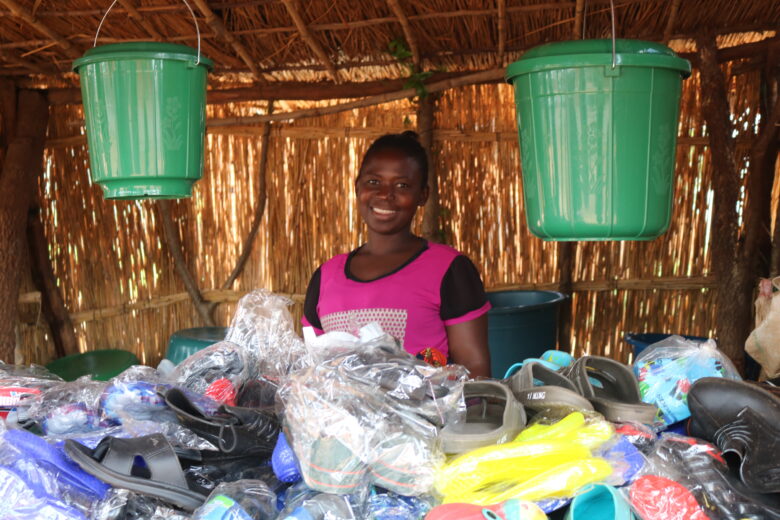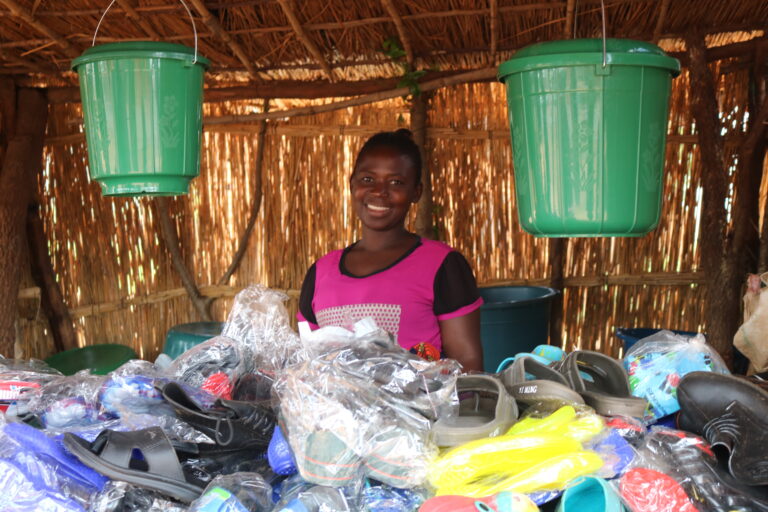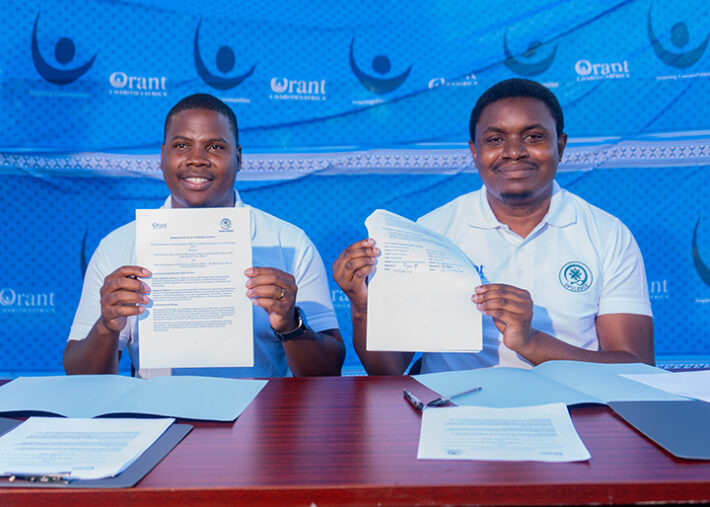Growing Malawi’s Economy through Orant’s FEM Program

Starting Small at the Kasese Trading Post

The need for growth in Kasese’s economy
If you are visiting Kasese Trading Center for the first time, there is one thing that is easy to see: a bench full of plastic shoes, basins and kitchen utensils. People flock to the bench, trying shoes on and admiring the kitchen utensils.
“This bench is so convenient to most of us. We do not have to travel to the nearest towns of Mponela or Kasungu to get shoes and kitchen utensils. This saves our time and money as Mponela and Kasungu are 23 km and 28 km away,” says one of the customers.
One of the challenges that people who live in rural Malawi face is getting goods, commodities and services. They are mostly required to travel several kilometers to the nearest towns to get things they need.
Our FEM program helps to lift the burden
Apart from serving women by loaning them capital for their businesses, our FEM program plays a big role in serving Kasese and surrounding communities.
“We make sure that our program supports businesses that supply unique services and goods that can not be easily accessed but are most needed by the community,” says Tango Phiri, FEM program manager.
FEM fuels Kasese Trading Center’s economic growth
What strikes Tango the most is that this also helps the money to circulate within Kasese Trading Center which, in turn, leads to the economic growth of Kasese and surrounding villages.
Patricia Banda, business owner and participant of the FEM program, explains that her business has grown from 200,000 MWK to 500,ooo MWK (approximately $200 to $500 USD).
Patricia explains how despite her long days of toil, nothing tangible could seem to emerge from her business because her capital was so small, until she joined the FEM program.
The FEM program improves business capital
“Since my business capital was so small, I could not meet the community’s demand. This in turn also affected the growth of my business,” she says.
When asked about the future, Patricia says “Sometimes when it rains, I have no option but to pack my items and go home until it stops raining.” She plans on saving and building her own shop to sell her items.
Patricia’s business is just one of many businesses that are serving the Kasese community. Thanks to our donors for helping serve the people of Kasese. Learn more about our FEM for Women program here.




